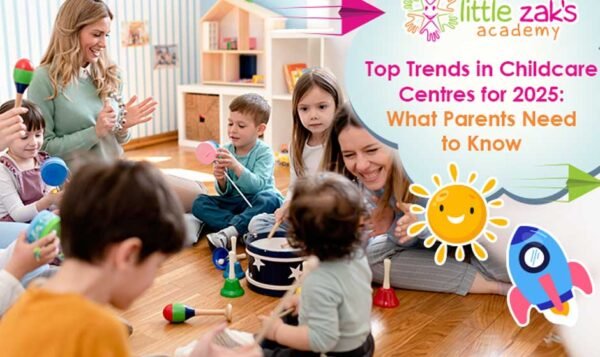Level Up Your Year 4 Students with Academic Competitions (2024 Guide)

Are you a school looking to challenge and inspire your Year 4 students in 2024? Academic competitions can be a powerful tool to elevate their learning experience.
Through these engaging and competitive platforms, students not only deepen their knowledge but also develop essential skills like teamwork, critical thinking, and resilience.
In this guide, we will explore various academic competitions tailored for Year 4 students, outlining their benefits and providing practical tips for schools to get started.
Why Academic Competitions Matter
Academic competitions offer exciting opportunities for students to shine beyond the classroom. These contests push students to think creatively, solve problems, and work collaboratively.
By participating in these events, students gain confidence and a sense of achievement. They also learn to handle pressure and manage time efficiently. Most importantly, competitions can ignite a passion for subjects that might otherwise seem challenging or tedious.
Types of Competitions for Year 4 Students
Various types of competitions cater specifically to Year 4 students. These include:
Maths Challenges
Maths competitions are a fantastic way to sharpen numerical skills. They promote logical thinking and problem-solving abilities. Events such as Maths Olympiads and local maths contests provide a fun yet challenging environment for young minds.
Spelling Bees
Spelling Bees enhance vocabulary and spelling accuracy. They encourage students to learn new words and understand their meanings and usage. Participating in Spelling Bees helps improve memory and concentration.
Science Fairs
Science fairs allow students to explore scientific concepts hands-on. Students can create projects, conduct experiments, and present their findings. This fosters a deeper understanding of scientific principles and nurtures curiosity.
Finding the Right Competitions
Selecting the right year 4 school competition is crucial for maximising student engagement and learning. Here are some tips:
Research Local and National Competitions
Look for competitions that are reputable and have a history of promoting educational advancement. Websites, educational forums, and local education authorities can provide information about upcoming events.
Consider Student Interests
Choose competitions that align with your students’ strengths and interests. This will keep them motivated and eager to participate.
Check Eligibility and Requirements
Ensure that your students meet the eligibility criteria and that the competition’s requirements are reasonable. This includes understanding the rules, deadlines, and any associated costs.
Preparing for Competitions
Preparation is key to success in any competition. Here’s how schools can help their Year 4 students get ready:
Mock Competitions
Conduct mock competitions to familiarise students with the format and time constraints. This will help reduce anxiety and improve performance.
Study Groups
Form study groups where students can collaborate and learn from each other. Peer learning is highly effective and fosters a sense of community.
Access to Resources
Provide access to books, online materials, and practice questions. Encourage students to use these resources to hone their skills.
The Role of Teachers and Parents
Teachers and parents play a vital role in supporting students through academic competitions. Their encouragement and involvement can make a significant difference.
Teachers as Mentors
Teachers should act as mentors, guiding students through the preparation process. They can offer insights, provide feedback, and motivate students to do their best.
Parental Support
Parents should be actively involved, offering emotional support and practical help. This could include helping with study schedules, providing transportation to events, and celebrating achievements.
Building a Culture of Participation
Creating a culture that values and celebrates academic competitions can have long-lasting benefits. Here’s how schools can foster this culture:
Celebrate Success
Recognise and celebrate the achievements of all participants, not just the winners. This can be done through award ceremonies, newsletters, and social media.
Encourage Participation
Encourage all students to participate, regardless of their skill level. Inclusivity ensures that every student feels valued and motivated.
Provide Continuous Opportunities
Offer a variety of competitions throughout the year. This keeps the momentum going and provides multiple chances for students to excel.
Long-term Benefits of Academic Competitions
Participating in academic competitions has several long-term benefits:
Enhanced Academic Performance
Regular participation in competitions can improve overall academic performance. The skills and knowledge gained are transferable to other areas of study.
Personal Growth
Students develop important life skills such as resilience, perseverance, and the ability to handle stress. These skills are valuable beyond the school environment.
Career Aspirations
Early exposure to competitive environments can inspire career aspirations. Students may discover a passion for a particular subject that influences their future career choices.
Overcoming Challenges
While academic competitions offer numerous benefits, there are also challenges to consider:
Managing Pressure
It’s important to help students manage the pressure of competition. Encourage a growth mindset, where effort and improvement are valued over winning.
Balancing Academics and Competition
Ensure that participation in competitions does not negatively impact regular academic responsibilities. Time management is key.
Inclusivity
Make sure that all students, regardless of background or ability, have the opportunity to participate. This fosters a supportive and inclusive environment.
In Summary
Academic competitions are a fantastic way to enrich the educational experience of year 4 students. By engaging in these contests, students can develop a range of skills that benefit them both academically and personally.
Schools, teachers, and parents all play a crucial role in supporting and encouraging students through this process.



